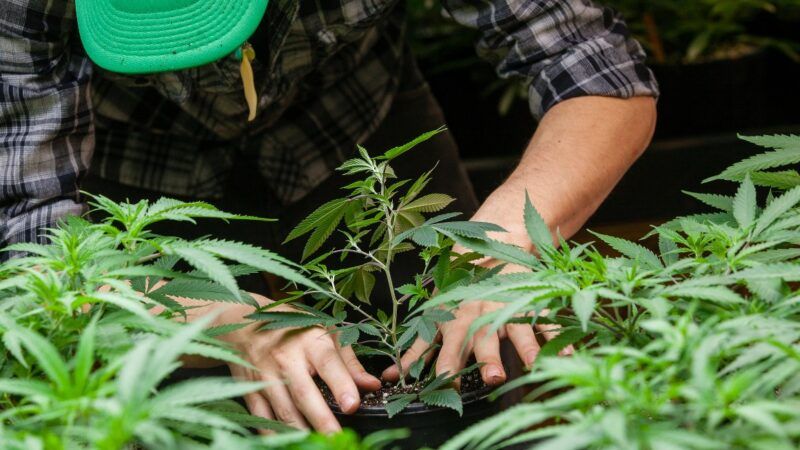Maryland Governor To Issue Mass Pardon to More Than 100,000 Marijuana Offenders
The blanket pardon is one of the largest yet, and another sign of the collapse of public support for marijuana prohibition.

Democratic Maryland Gov. Wes Moore will issue a blanket pardon for low-level marijuana convictions in the state today, a move that the governor's office estimates will clear the records of an estimated 100,000 people.
Moore's office claims it is the largest mass pardon by a state related to marijuana, and the first to include offenses for the possession of paraphernalia as well. Maryland legalized recreational marijuana last year after voters approved a 2022 constitutional amendment by 67 percent.
Moore says the pardons are an effort to remove the burdens of felony convictions, such as barriers to employment and housing, which have fallen particularly hard on minority neighborhoods that were targets of the drug war.
"I'm ecstatic that we have a real opportunity with what I'm signing to right a lot of historical wrongs," Moore said in an interview with The Washington Post, which first reported the story. "If you want to be able to create inclusive economic growth, it means you have to start removing these barriers that continue to disproportionately sit on communities of color."
According to Moore's office, Maryland located every conviction or guilty plea in the state's electronic court records system for simple marijuana possession or possession with intent to use drug paraphernalia, adding up to around 175,000 cases, and will issue automatic pardons, including in cases where the offender is dead.
Nine other states have issued large-scale clemency orders for old marijuana offenses, and two dozen others have launched expungement campaigns, resulting in the expungement or sealing of 2 million marijuana-related cases since 2018, according to the National Organization for the Reform of Marijuana Laws (NORML). Massachusetts Gov. Maura Healey announced a similar blanket pardon for misdemeanor marijuana possession convictions in March, and former Oregon Gov. Kate Brown announced in 2022 that she would pardon an estimated 45,000 Oregonians with marijuana offenses on their record.
"Hundreds of thousands of Americans unduly carry the burden and stigma of a past conviction for behavior that most Americans, and a growing number of states, no longer consider to be a crime," NORML deputy director Paul Armentano said in a press release. "Our sense of justice and our principles of fairness demand that public officials and the courts move swiftly to right the past wrongs of cannabis prohibition and criminalization."
The first major cracks in prohibition have started to show at the federal level as well. The Drug Enforcement Administration recently proposed reclassifying marijuana as a Schedule III drug—although as Reason's Jacob Sullum wrote, the impacts will be modest and the Justice Department still had to strong-arm the agency. President Joe Biden also issued mass pardons for low-level federal marijuana offenders, but those actions still left in place the framework for marijuana convictions and the "needless barriers to housing, employment, and educational opportunities" that Biden has lamented.
The mass pardons are an acknowledgement, though, that public support for marijuana prohibition has collapsed. Seven out of 10 Americans now oppose pot prohibition, and it's legal at the state level in some form in more states than not.
The pardons are also an acknowledgment that pot offenders are still being punished with a criminal record for voluntary, nonviolent behavior that the vast majority of people no longer think should be a crime. And although the pardon proclamations issued by governors are often couched in terms of racial justice, Reason has pointed out many times over the years that the drug war would still be immoral even if it was waged without bias. Criminal prohibition is a policy that's failed everyone except drug cartels.


Show Comments (77)